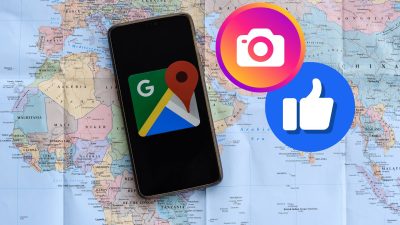Although SEO can be learned and you may find success on your own, there are some things to consider before you embark on this journey:
The first question is, do you have the time?
Is it possible to diagnose website problems?
How Committed Are You to Learning?
Is there a budget for help?
Before I get into the details, yes, I’m biased towards having someone help you with SEO. You can sometimes do more harm than good with a half-baked DIY SEO implementation. I’ve been called to fix a lot of them. Ask yourself these questions:
The first question is, do you have the time?
Whether you are a solopreneur or a business with a team that wants to tackle SEO, you likely have a business to run.
Of course, there will be one-time tasks at the beginning of a project, but SEO remains constant throughout the lifecycle of the site.
When starting an SEO campaign, you will need to do the following:
- Analytics installation and configuration
- Ensure the site is mobile-friendly
- Identifying and addressing site speed issues
- Securing the site
- Researching keywords
- Analyses of competitors
- A holistic approach to SERPs
Here is what you should do at least once a month, broken up into weeks:
- Publish authoritative, expert content.
- Publish Videos
- Link content to relevant website pages & other articles
- Keep an eye on the link profile and fix anything that needs to be fixed.
- Fix website issues, run site crawls, and review reports.
- Analyze the competitive environment and implement new strategies as necessary.
- Implement new strategies based on analytics and data, including rankings and traffic.
- Optimize existing content, including page optimization, page combining, and redirecting irrelevant pages.
Obviously, it is not always this cut and dry. You have to discern what tasks will yield the best return on investment.
When your rankings and traffic suddenly crash and burn and phone calls stop, will you know how to diagnose the problem?
The next step is to turn your attention to finding and solving the problem. Was there a Google change? Is there new competition? Did something happen offline that affected your traffic? Did you redesign your website?
You won’t be able to make this diagnosis easily if you are just starting out. It often takes a lot of wisdom and experience.
As soon as you’ve figured out the problem and fixed it, you’ll need to catch up on your daily SEO deliverables. Unfortunately, organic search is fast-paced, which means the picture can change on a dime.
Learning the latest strategies in SEO and how to perfect the best practices takes time. You will need to set aside hours each month for education as Google changes things frequently.
Depending on the month, you might:
Attend a webinar or two
Listen to several podcasts
Review SEO news
Read Google’s Blog
Take a training course and go through the modules
Talk to Google or SEOs about issues you’re having in forums or Q&A sessions
Participate in a conference or event (virtually or in person)
Check out the Facebook and Discord Groups you are part of that address cutting-edge SEO
A good SEO strategy requires continuous learning. You learn when you do SEO, and you learn when you listen to others.
Is there a budget for help?
There will be problems that you cannot fix on your own, so you will seek advice when you’re a DIYer.
If you are doing SEO on your own, you may not want to spend more money on outside expertise. If you have a little budget set aside, you can get the type of help you need.
On your SEO journey, you could invest in two important things:
At the beginning of any SEO campaign, you should conduct an SEO audit, which will uncover where your website is hurting SEO and what needs to be fixed.
A block of hours you can use to assist with tough questions or special projects outside your expertise; especially helpful when you need help.
When things get tough along the way, a little help can help you succeed with your DIY SEO program.
You need to prioritize SEO, be committed to maintaining it and be able to set aside some budget for outside help when necessary.
I recommend either not doing SEO or hiring outside expertise if any of those seem too difficult.
We can help if you don’t have the time or don’t know where to begin. Contact us for a free consultation.



